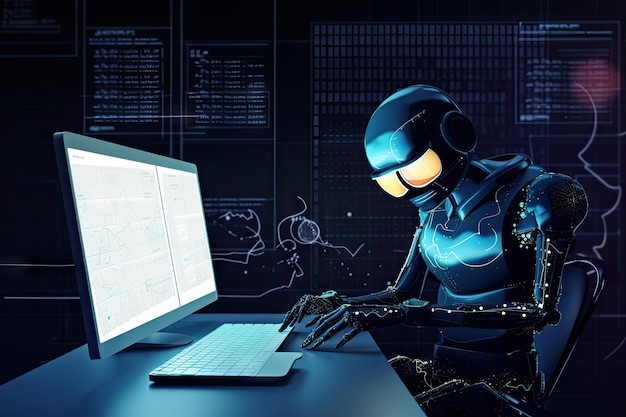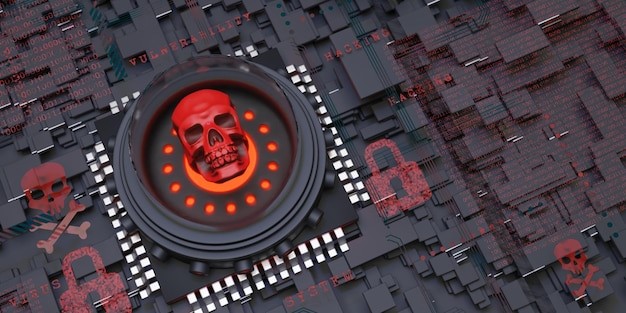In an ominous prediction, Britain’s spy agency, GCHQ, has issued a report highlighting the potential dangers of artificial intelligence (AI) in transforming novices into potent hackers. As we step into an era where the power of AI could make cyber warfare more accessible than ever, the report underscores the alarming threat landscape looming over the digital realm. The ease with which AI can empower even those lacking traditional hacking skills is a focal point of concern for cybersecurity experts and professionals worldwide.
Also Read: WhiteRabbitNeo-33B: Revolutionizing Cybersecurity with Advanced AI Capabilities

A Surge in AI-Fueled Cyberattacks
The National Cyber Security Centre (NCSC), a vital arm of GCHQ, predicts a notable increase in cyberattacks over the next two years, primarily driven by the capabilities of AI. Among the concerns raised is the ominous prospect of a spike in ransomware attacks, where criminals exploit AI tools to lock up computer systems, demanding ransom for their release.
Also Read: FraudGPT: The Alarming Rise of AI-Powered Cybercrime Tools
AI Empowers Novice Hackers
One of the report’s stark warnings is the potential lowering of barriers for unskilled hackers. AI tools could automate tasks traditionally requiring expertise, such as crafting convincing phishing emails or documents. This unsettling democratization of cyber threats poses a significant challenge for cybersecurity professionals worldwide.
Also Read: AI Can Crack Most Passwords Within a Minute. Here’s How to Protect Your Passwords

The Uneven Impact
GCHQ’s report cautions that the impact of AI on the cyber threat landscape will be uneven. While acknowledging the increased volume and heightened impact of cyberattacks, the report emphasizes that the biggest beneficiaries of AI-powered cyber capabilities are likely to be opportunistic hackers lacking the skills for more sophisticated attacks. The adoption of generative AI tools like chatbots could further amplify the potency of phishing campaigns.
Risk of State-Backed Hackers and AI
On a more advanced level, the report highlights the enhanced capabilities that state-backed hackers might wield with advanced AI. Governments with superior AI capabilities could develop sophisticated malware, launching highly targeted attacks against critical infrastructure. The convergence of AI and cyber warfare adds a layer of complexity to the already intricate landscape of international cybersecurity.
Also Read: Visa’s Cutting-Edge AI Shields Credit Card Users Against Cyber Threats
Our Say
As AI becomes a double-edged sword in the hands of hackers, it’s imperative for the cybersecurity community to stay ahead in the chess game of cyber warfare. The democratization of cyber threats brings both challenges and opportunities, demanding a proactive approach. Balancing technological advancements with robust defense mechanisms is the need of the hour. The integration of AI in the cyber realm necessitates constant vigilance, collaboration, and innovative solutions to fortify our digital fortresses against the evolving landscape of cyber threats.
Follow us on Google News to stay updated with the latest innovations in the world of AI, Data Science, & GenAI.




